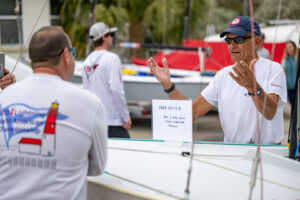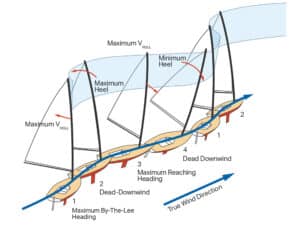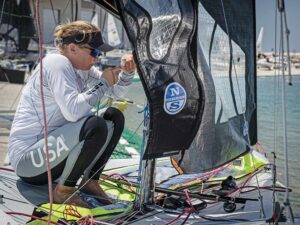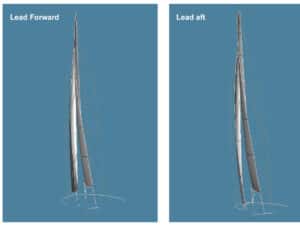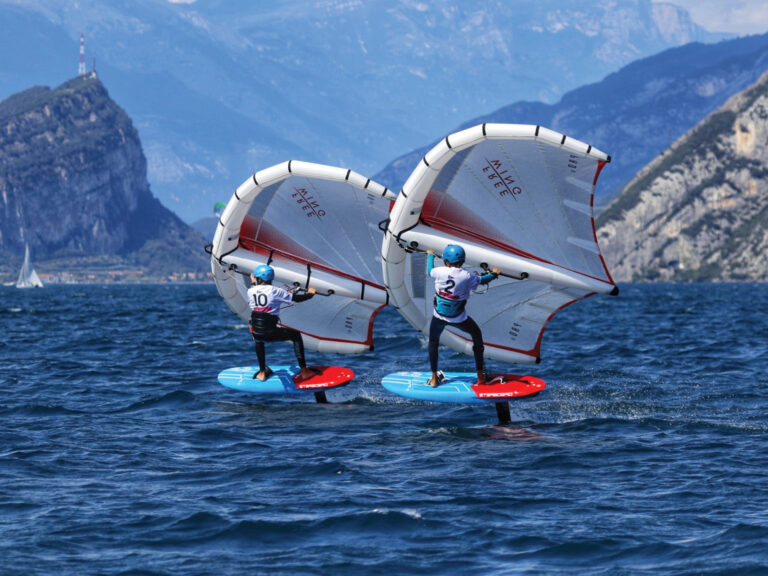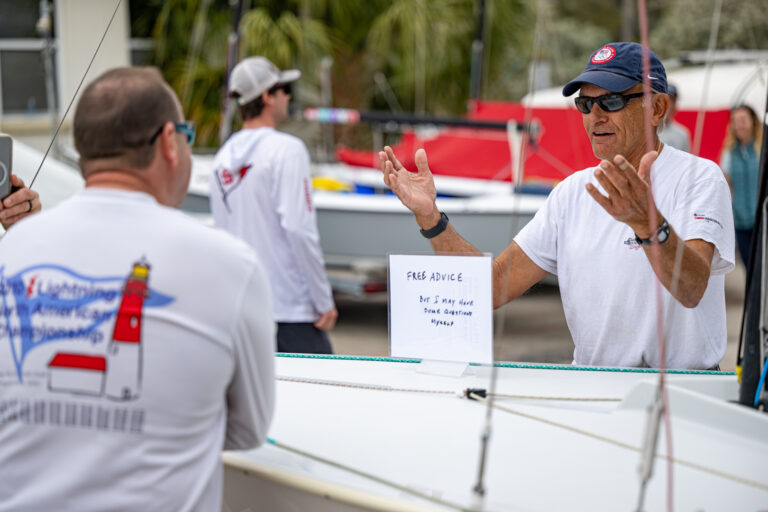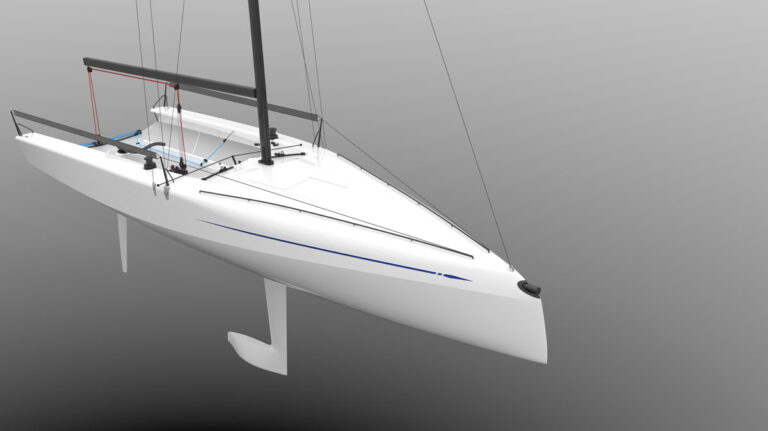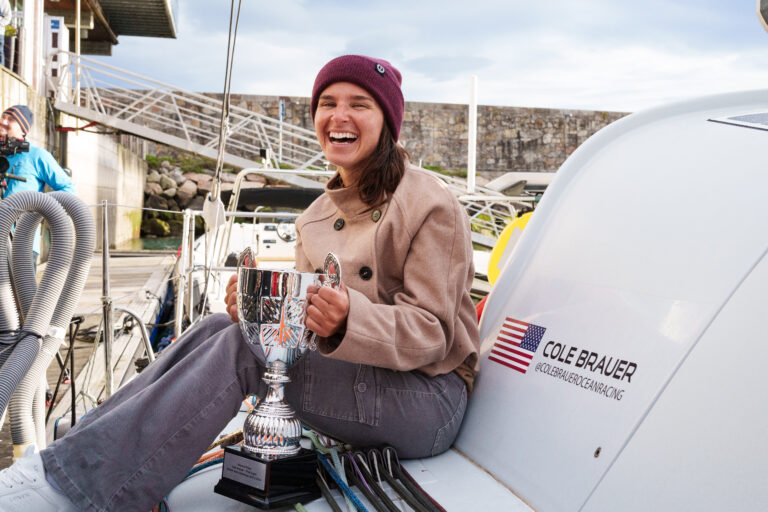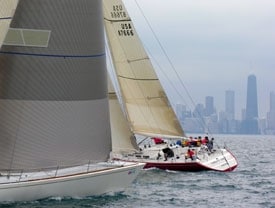
StratStory
After a day on the water, the good doctor usually finds himself dishing out off-the-cuff counseling to his competitors and mates, but recently a top dinghy coach cornered him in the dinghy park. Turns out she was having a difficult time teaching one of her young disciples the essentials of strategy, and as always, the doctor knew just the trick.Doc: Hi Clare. It’s been a while since I’ve seen you around these parts. How’s the coaching game going?Clare: Fantastic! I’ve been spending a lot of time with the new youth squad recently. Some of these kids are really sharp. Actually, you could be just the person I need a word with. Have you got a moment?Doc: Sure.Clare: You see, the problem is this: There’s this young guy in the squad, Luke, and he’s a genius in a small boat. He has this remarkable natural talent to make a boat sail well. He seems to have pretty good wind sense too, you know, picking the way the wind will move or where the next puff is coming from. So, as a result, he wins easily in club fleets, but in competitive fleets he’s hopeless. Doc: I’ll bet you both find that really frustrating.Clare: Exactly. And we’ve tried and tried to work on his strategic skills. He just seems easily overwhelmed. I mean, when you get down to it, this is a very complex sport. Well, that got me to thinking about how I go about coaching strategy, not just to young sailors, but also to anyone else.Doc: How do you do that now?Clare: It’s dawned on me that we, as coaches, don’t have a lot in the way of options. I know of only three ways: Give them a good book, stand up and lecture them about the same material they read in that good book, or review tactical and strategic decisions at the debrief after the race.Doc: That makes sense to me. So what is the problem?Clare: It’s hard to put my finger on it. Obviously, any top racer needs to have a large knowledge base, and reading and listening to people talk about strategy certainly builds that. But it’s not enough. For example, a sailor can read everything there is to read about a good roll tack, but if she has never actually done one well, you get my drift. Somehow I have to find a way of teaching sailors how to apply that knowledge, and when to apply it.Doc: I presume that’s what the race debriefs are about?Clare: You would think so. But an hour and a half after the race has finished, when the boats are unrigged and everyone has had a shower Doc: and is heading for the bar.Clare: Not my youth squad! But, yes, that sort of thing. The most you can do is talk about one or two incidents, and usually my recollection of the events differs markedly from the sailor’s.Doc: What you need is a “freeze button” on the racetrack. “All right, everybody, stop where you are and let’s talk this through.”Clare: Exactly. It’s a shame, but sailboat racing isn’t built that way. Even holding a conversation for more than a few seconds on the water is really difficult.Doc: What about doing some sort of simulation?Clare: You mean using one of those computer games? Doc: I suppose I do. How realistic are they?Clare: Not very. Well, not as far as the sailing goes. But some of the strategy simulators aren’t too bad. At least you could talk about decisions as they happen. At least they have a “freeze button.”Doc: So what are you trying to achieve? What would be your objectives from training like this?Clare: I want them to learn how to apply their knowledge, to work out what the priorities are in any given situation. I want them to work out what is important in any particular decision-and they need to do it fast.Doc: Sounds like quite a mission. How do really good racers do it? Actually, how do you do it?Clare: I’ve never really thought about it. It almost seems intuitive, I guess. In the heat of the moment, I don’t think I’m thinking very much. I just sort of do it-do you know what I mean?Doc: You mean your decision-making has an automatic feel to it?Clare: I guess so. But that doesn’t really help when I’m trying to coach young sailors.Doc: There is some interesting research that contrasts the athletic performances of experts and novices when making rapid decisions. I wonder if that would be of some use.Clare: Can’t hurt. Let’s hear it.Doc: Well, the short version is that experts are no different from novices in terms of their visual perception or their reaction speeds. But experts have two advantages over novices in making high-speed decisions. Firstly, they have a larger knowledge base concerning the options available and the probable outcomes.Clare: Well that’s not exactly rocket science. What’s the other difference?Doc: Experts seem to use different and earlier reference information when making their decisions. For example, a novice tennis player will watch the ball as it comes off the racket to judge where the ball is going to go. The expert might look at the position of the hand and the racket before the ball is hit to make a judgment. That is, experts have more time because they recognize the situation earlier.Clare: Now that I can use. I can use it, can’t I?Doc: If you want to train the sailors to use earlier cues automatically, they will need to do it mechanically first. What sort of questions might help a young sailor recognize those important cues?Clare: So rather than telling them what to look for, ask them what they notice?Doc: That makes sense. A really good standard question for strategy training is, “What is going to happen next?” By focusing on that question the sailors are forced to look further up the course. They start to anticipate situations rather than simply react to them. Every few seconds, as the race or the simulation changes, push the freeze button and ask the question. They really start to get it after a while.Clare: Hey, that’s really good! But isn’t there more to this than just recognizing what is going to happen. You said that experts have a larger knowledge base. But they also know how to apply it. I want my sailors to work out what’s important in any situation-where the priorities lie.Doc: That sounds like another good question to me.Clare: How do you mean?Doc: Something like, “What is the important outcome here?” or “What’s my preferred option or direction here?” Again, it’s a question that has the sailor thinking about options before he must make the decision. The most common form of this is whether to tack or hold in a crossing situation upwind. An entire conversation can flow from the question, about which is best and why. But in the end, if the sailor has worked out ahead of time that he wants to hold, then the decision becomes a lot easier.Clare: It seems like you’re talking about a constant monitoring process. All the time the sailor is looking up the course and saying, “What’s going to happen next?” and “Where do I want to be going?”Doc: Certainly sounds like a coaching option anyway. Is that what you do when you race?Clare: You have a remarkable ability to sound smug!

